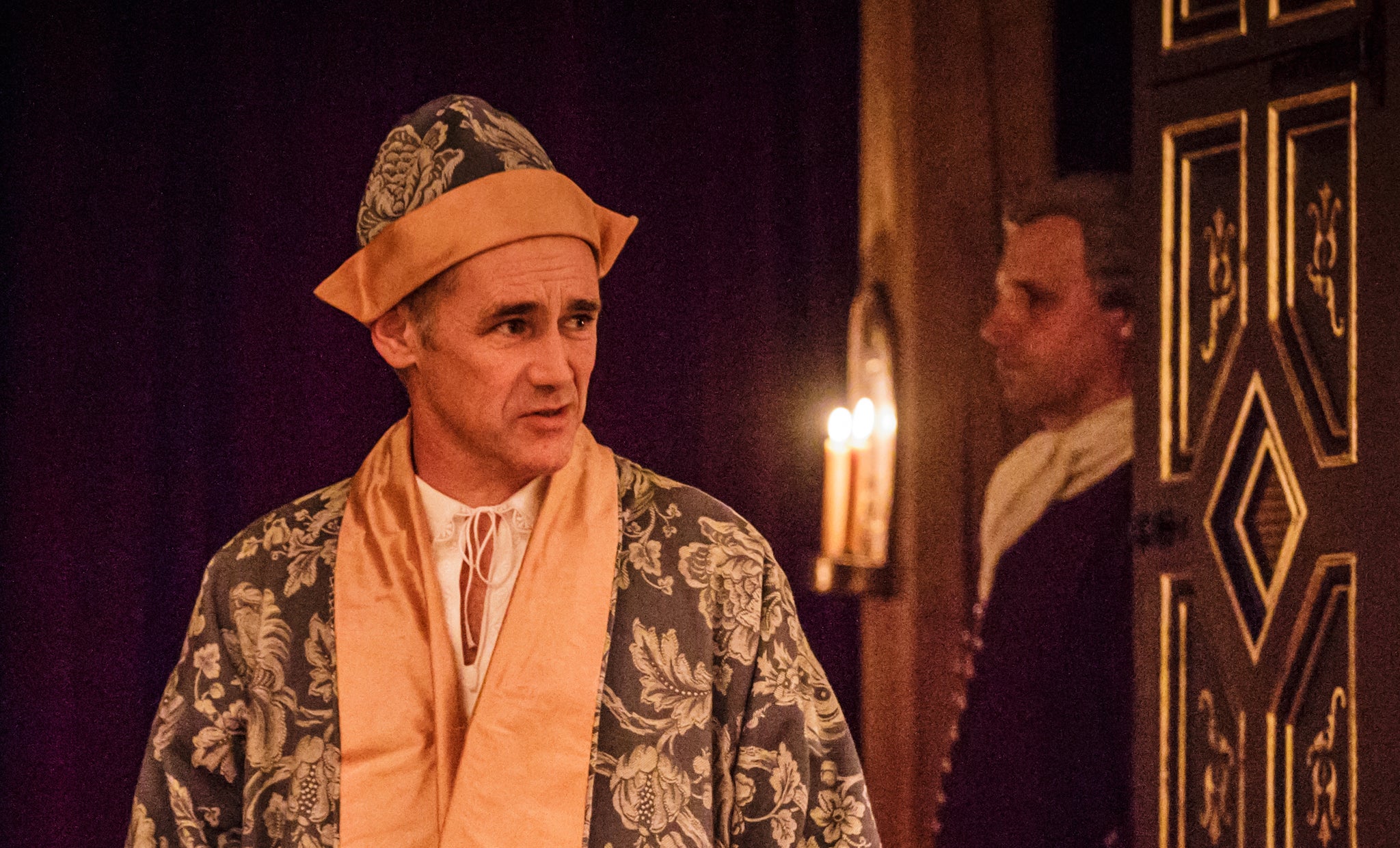Farinelli and the King, theatre review: Wolf Hall's Mark Rylance brings brilliant, wrong-footing mischief as Philippe V
Sam Wanamaker Playhouse, London

Mark Rylance's many triumphs at Shakespeare's Globe are legendary. Now, just as a wider television audience is waking up to his genius through Wolf Hall, he makes his acting debut at the theatre's new-ish indoor playhouse.
He does so in a beguiling first play by his composer-wife and long-time collaborator, Claire van Kampen, that's hauntingly attuned – in theme and register – to the courtly candle-lit intimacy of this jewel-box of a space and to its capacity for up-close music-making.
Rylance portrays Philippe V of Spain, initially seen here on a chaise longue in a splendid rococo dressing gown, night-cap askew, fishing in a goldfish bowl while having a confidential chat with its finny occupant and claiming that it is all a dream.
But in flashes of petulance and sudden cruel barbs, the actor shows us that the king's whimsical, rambling eccentricity – performed with brilliantly sly, wrong-footing mischief - is the retreat of a profound depressive. The grandson of Louis XIV, he feels stiflingly trapped and miscast in the rule-bound world of 18th century monarchy and in his frustration is apt to turn violent on his anxious, long-suffering wife Isabella whose concern and hurt are vividly conveyed by Melody Grove.
Enchantingly directed by John Dove, the drama sends speculative probes into the real-life story of how the only thing that could distract Philippe from his mental torment was the voice of Farinelli. The superstar castrato of the day, this figure exchanged an adoring public for an audience of just the one afflicted man who can hear in his unearthly tones the music of the spheres.
Why did the performer consent to this set-up and why did he stay in Spain beyond the king's death? The play suggests strong affinities between the two men who were recruited to their professions by unnatural means – Philippe by his grandfather; Farinelli gelded, at the age of ten, by his gold-digging composer-brother. “I felt nothing. Not even despair” says the singer of his fame and fortune on the London stage. This sense of self-division in Farinelli is emphasised here by the dual casting which sees Farinelli the man played by an affectingly bruised and hesitant Sam Crane while the identically dressed counter-tenor Iestyn Davies sings with rapturous virtuosity and uncanny beauty those Handel arias that give the King temporary release.
A love-triangle is also intimated but one in which Philippe is a weird kind of participant. He's often cruelly dismissive of his wife once he's dragged the three of them off to live in a hole in the forest where they can harmonise with the music of the stars. And when Farinelli endeavours to escape, he resorts to a technique of blackmailing sulks and threats. But in the often very funny script and in Rylance's subtle, understated performance, the deep, self-centred depressive, the vulnerable over-sensitive visionary and the engaging crank, full of subversive humour, are so humanely enmeshed that your heart never ceases to go out to him. Keenly insightful about both music and melancholy, this is a beautifully wrought 2-hour miniature.
To March 8; 020 7401 9919
Join our commenting forum
Join thought-provoking conversations, follow other Independent readers and see their replies
Comments